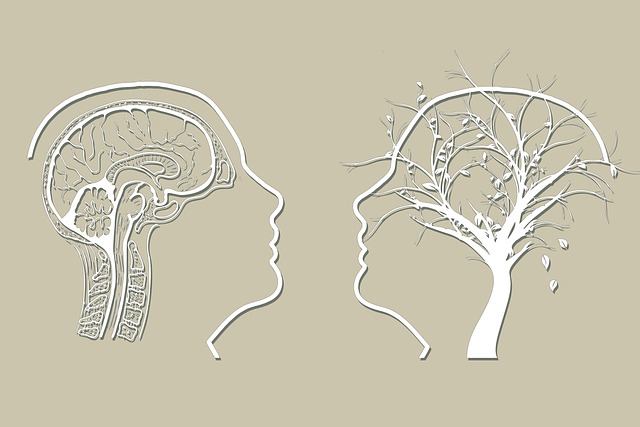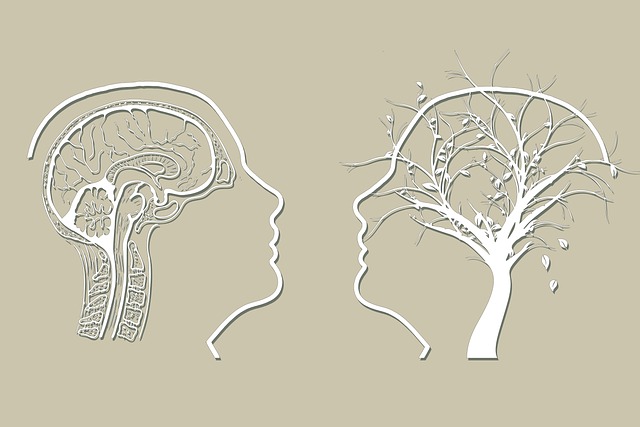Greenwood Village Young Adults Therapy tackles unique mental health challenges faced by young adults through positive thinking exercises, including gratitude journaling, mindfulness meditation, and cognitive reframing. Social skills training and public awareness campaigns further support their holistic approach to foster resilience, self-belief, and a sense of belonging. Therapists guide clients in integrating these practices into daily life, with progress tracked through emotional assessments, revealing improved coping strategies and increased well-being.
In Greenwood Village, young adults therapy settings increasingly recognize the power of positive thinking as a catalyst for growth and healing. This article explores how therapists can effectively implement positive thinking exercises tailored to meet the unique needs of this demographic. We’ll delve into strategies for designing engaging activities, practical implementation techniques, and methods for tracking progress to measure the impact on clients’ well-being in Greenwood Village young adults therapy.
- Understanding Positive Thinking: The Foundation of Growth and Healing for Young Adults in Greenwood Village
- Designing Effective Positive Thinking Exercises Tailored to Young Adult Needs
- Implementing the Exercises: Strategies for Therapists in Greenwood Village Young Adults Therapy Settings
- Tracking Progress and Measuring Success: Assessing the Impact of Positive Thinking on Young Adult Clients
Understanding Positive Thinking: The Foundation of Growth and Healing for Young Adults in Greenwood Village

In Greenwood Village, young adults often face unique challenges that can significantly impact their mental health and overall well-being. Understanding positive thinking is a foundational step in addressing these issues. Positive thinking exercises empower individuals to cultivate optimism, resilience, and self-belief, all of which are crucial for personal growth and healing. By integrating practices such as gratitude journaling, affirmations, and cognitive reframing, young adults can enhance their emotional intelligence and navigate life’s challenges with greater ease.
Greenwood Village Young Adults Therapy recognizes the importance of mental health awareness and promotes positive thinking as a tool for self-improvement. Social skills training is also integral to this process, helping individuals build healthy relationships and foster a sense of belonging. Public awareness campaigns development further supports these efforts by educating the community on mental health issues, breaking down stigma, and encouraging open conversations about well-being. These multifaceted approaches contribute to creating a supportive environment where young adults can thrive and develop robust coping mechanisms for life’s ups and downs.
Designing Effective Positive Thinking Exercises Tailored to Young Adult Needs

Designing Positive Thinking Exercises for Young Adults requires a nuanced approach that caters to their unique needs and challenges. Greenwood Village Young Adult Therapy emphasizes the importance of creating tailored interventions that resonate with this demographic. Engaging activities such as guided mindfulness meditation sessions can help young adults cultivate present-moment awareness, reducing stress levels and promoting emotional well-being. These practices are particularly effective in navigating the complexities of modern life, where they can enhance coping mechanisms and foster resilience.
Incorporating various Stress Reduction Methods, including cognitive reframing techniques and positive affirmation exercises, allows for a holistic approach to mental health support. Public Awareness Campaigns Development centered around these strategies can further empower young adults to take an active role in their well-being. By integrating such exercises into therapeutic settings or community initiatives, Greenwood Village Young Adult Therapy ensures that this age group receives the tools necessary to thrive and confront life’s challenges with a more positive mindset.
Implementing the Exercises: Strategies for Therapists in Greenwood Village Young Adults Therapy Settings

Implementing positive thinking exercises in Greenwood Village Young Adults Therapy settings requires a strategic approach tailored to engage and empower clients. Therapists play a pivotal role in guiding young adults through these practices, ensuring they become integral parts of their daily lives. To achieve this, therapists should start by integrating exercises into existing therapy sessions, using them as tools to facilitate discussion and reflection. For instance, encouraging clients to maintain gratitude journals or practice mindful meditation for a few minutes weekly can offer immediate insights into their emotional states and thought patterns.
Additionally, therapists can incorporate these exercises during group sessions, fostering a supportive environment where peers can learn from each other’s experiences. This collaborative approach not only enhances the effectiveness of the exercises but also reinforces a sense of community. Moreover, tailoring exercises to individual needs through comprehensive risk assessments for mental health professionals is crucial. By balancing the benefits of positive thinking with an awareness of potential risks, therapists can effectively promote self-care routine development for better mental health and foster the growth of inner strength among their clients in Greenwood Village Young Adults Therapy settings.
Tracking Progress and Measuring Success: Assessing the Impact of Positive Thinking on Young Adult Clients

Tracking progress and measuring success are essential components when assessing the impact of positive thinking exercises on young adult clients at Greenwood Village Young Adults Therapy. Therapists can employ various methods to gauge improvements in mental wellness, one of which is tracking changes in emotional regulation over time. By regularly evaluating clients’ emotional responses through discussions, journaling, or structured assessments, therapists can identify patterns and shifts towards more adaptive coping strategies.
This process allows for a nuanced understanding of positive thinking’s effectiveness. For instance, improvements in emotional regulation may manifest as reduced anxiety, increased resilience to stressors, or enhanced overall life satisfaction. Success is not solely defined by numerical metrics but also by qualitative feedback from clients about their heightened sense of optimism, improved self-perception, and better ability to navigate daily challenges.
Implementing positive thinking exercises tailored to young adults in Greenwood Village therapy settings can significantly enhance their emotional well-being and personal growth. By understanding the power of positive thinking, therapists can design effective strategies that cater to the unique needs of this demographic. Through consistent practice and tracking progress, these exercises have the potential to revolutionize the therapeutic journey for Greenwood Village young adults, fostering a more optimistic outlook and improved mental health outcomes.












